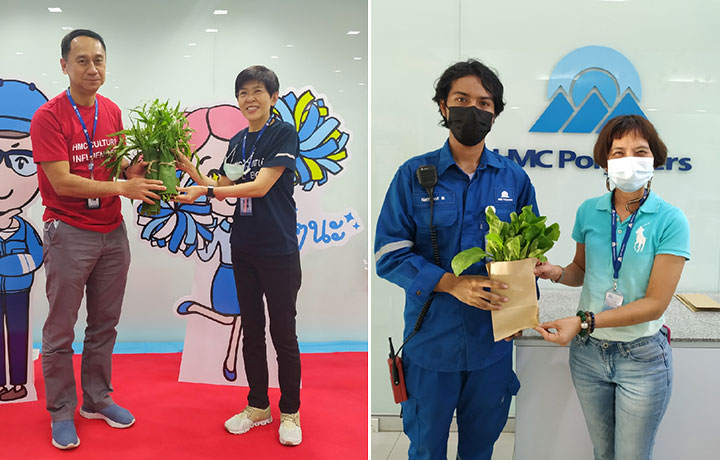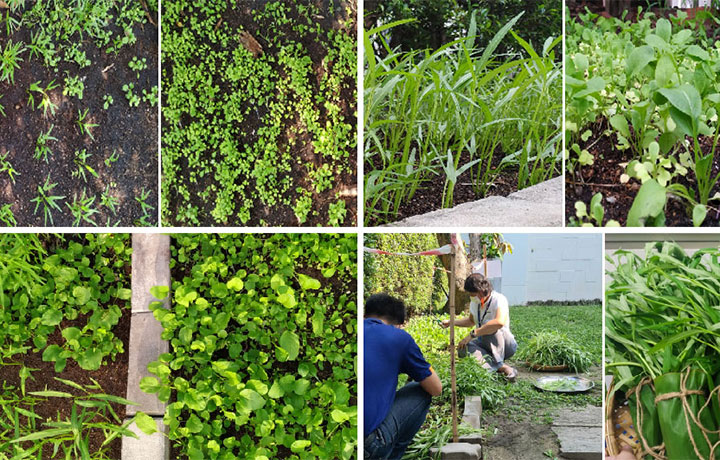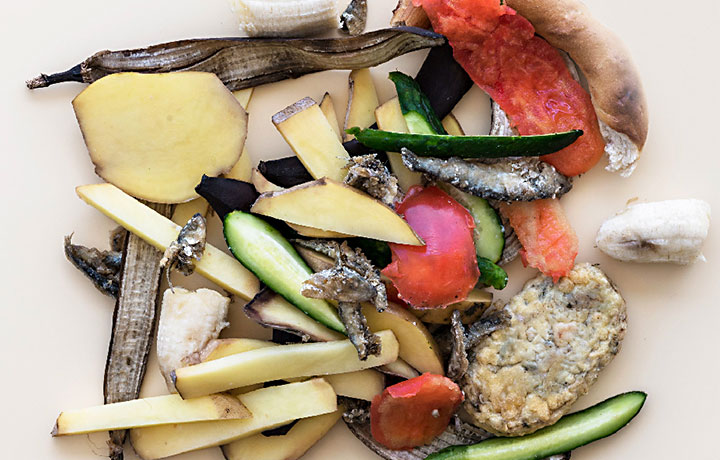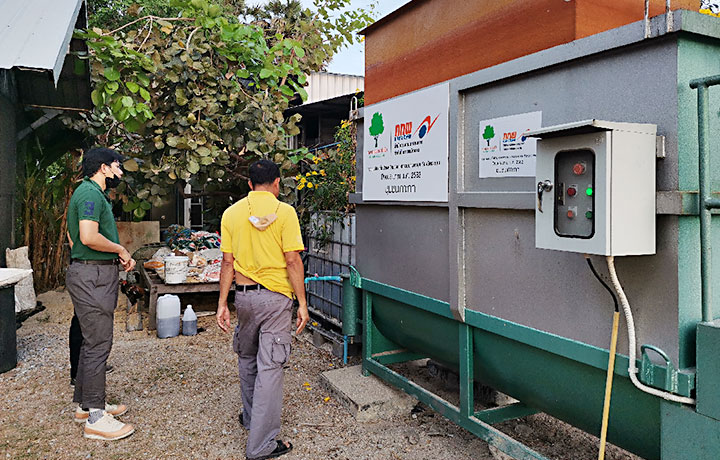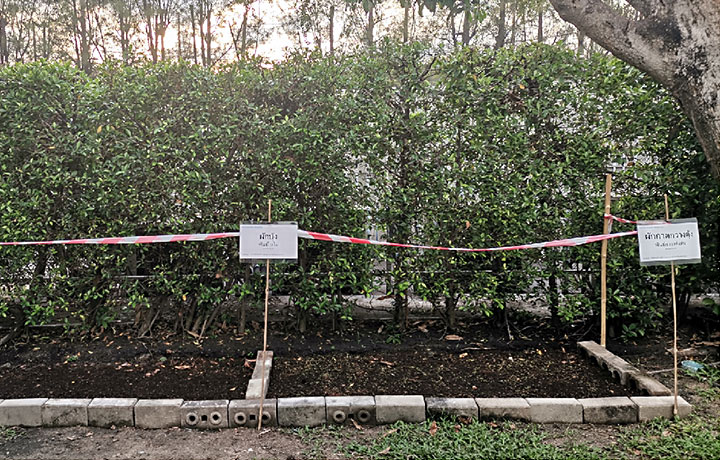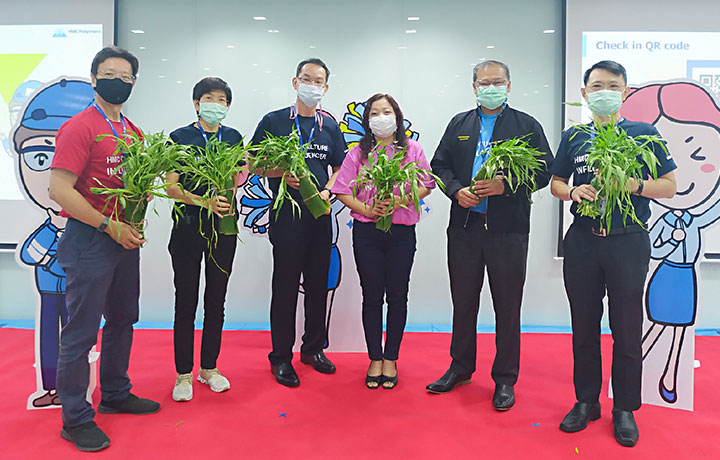HMC Zero Waste Program
HMC has a number of sustainability development initiatives currently active and expanding. One such program is Zero Waste which seeks to manage food waste to reduce the volume and utilise the remaining amount as fertilizer.
In 2020, HMC collected the food waste from the canteens of the PP and PDH plants in Map Ta Phut and sent it to the neighboring community of Koh Kok which also conducts their own Zero Waste project. There the food waste is converted into an organic fertilizer and used as pork feed.
Due to those positive results, in early 2021 we committed to a continuation of the project to focus specifically on the fertilizer efficiency. On that basis fertilizer samples are being sent to Kasetsart University, Kampangsan campus at Nakornpathom and the office of Agricultural Research and Development Region 6, Chanthaburi to verify its level of effectiveness.
As part of the Zero Waste Program, HMC has constructed agricultural demonstration plots behind our Administration Building at the PP plant. In that plot, selected vegetables for testing include a morning glory and a cantonese lettuce also known as Bok Choy. These vegetables are grown with and without the composed fertilizer from food waste and compared to gauge its effectiveness.
After running the experiment for 30-50 days, both organic vegetables were ready to be cultivated as indicated by their growth height which measured around 30 centimeters. The Sustainability Development working group, lead by Khun Angkanee Soonthornsawad, gathered this first harvest and presented it to the Leadership Team and also passed on the comparative results to our agricultural collaborators.
We can benefit from the re-use of food waste by fermented composting for household or professional food agriculture to assist sustainable waste management and contribute to the goal of zero waste.


